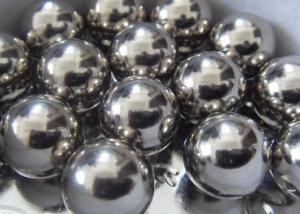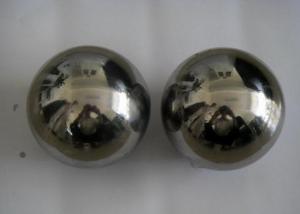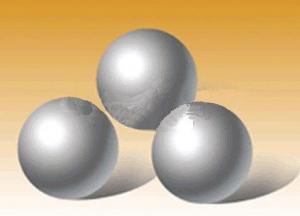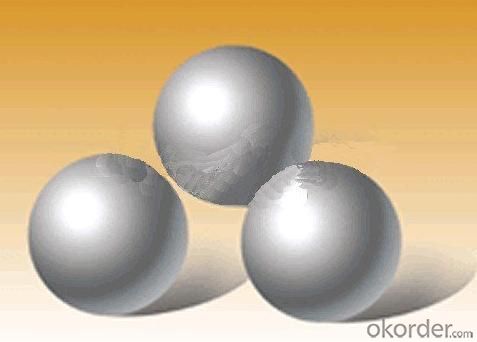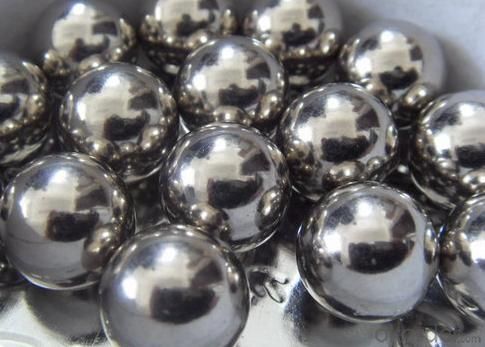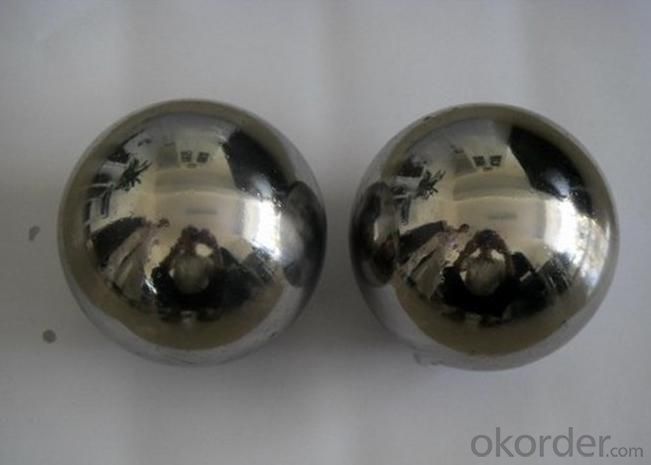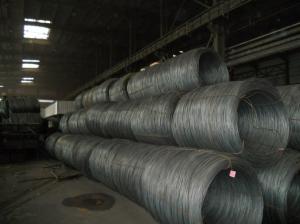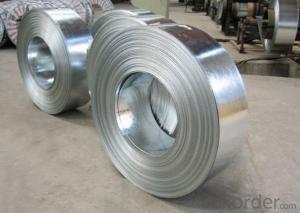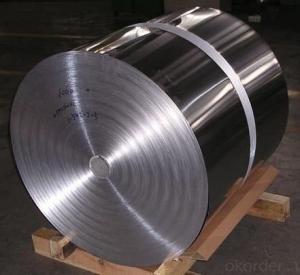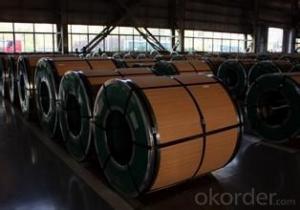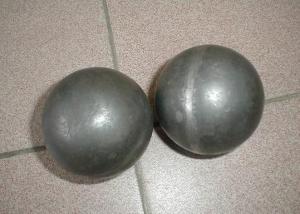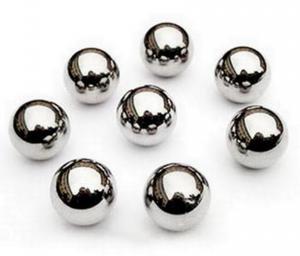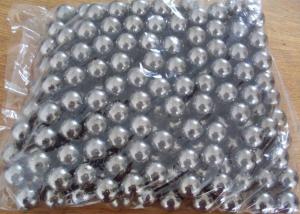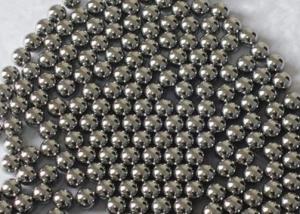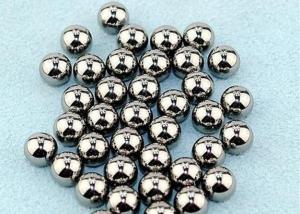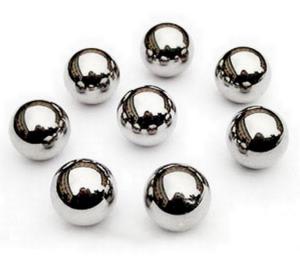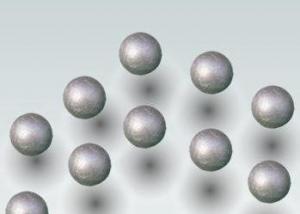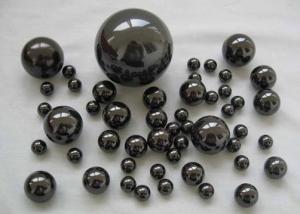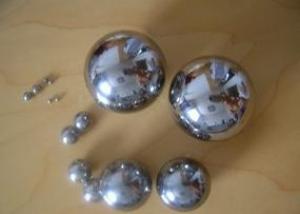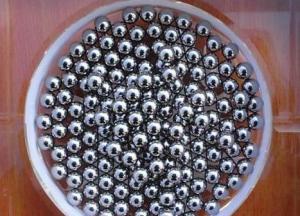304 Stainless Steel Ball
- Loading Port:
- China Main Port
- Payment Terms:
- TT or LC
- Min Order Qty:
- 5 Tons pc
- Supply Capability:
- 1000 Tons Per Month pc/month
OKorder Service Pledge
OKorder Financial Service
You Might Also Like
Main Products Of 304 Stainless Steel Ball:
1. Material: AISI304, 316L, 420C, 430, 440C
2. Steel ball, with material AISI 1008-1086.
3. Chrome steel ball,with material: AISI52100
4. Flying saucer steel ball
5. Precision casting, including auto parts, machine parts, hardware handles, etc.
Character Of Products Of 304 Stainless Steel Ball:
1.The Grade of our products is from G10 to G1000
2.The dimension is from 0.5 mm to 25.4 mm.
3.The products from us are widely used in several industries, such as hardware, sliders, ball bearing lead screw, wheels, toys,
bicycles, bearings, trust bearings pulleys, chemical industries, etc.
Detail Specification Of 304 Stainless Steel Ball:
Item | SS304,316L,420C,440C Stainless steel ball |
Category | Stainless Steel Ball |
Material | AISI 420 430 440 SS304 316L |
Size | 0.5mm--25.4mm, 1/4",3/16",5/32",1/8",7/32",5/16",7/8",1" |
Grade | G100-G3000 |
Hardness ( HRC) | HRC58-65 |
Application | Bicycle, bearing, pulley, slide, handcraft, shelf, luggage, hardware, grinding media |
Standard | GB/T-308-2002, GB/T1148-93 |
Matched Standard | DIN, JIS, ASME |
Certification | ISO |
Packing | Oily packing in pouch packing,plastic/tin box packing 1, 25kg/carton with steel pallet packing 2,25kg/carton without steel pallet packing 3,10kg/box then in wooden case packing 4,250kg/ steel drum packing or according to customers' requirement |
Place of original | Shandong province, China |
Delivery | Within 30 days or confirmed while placing order |
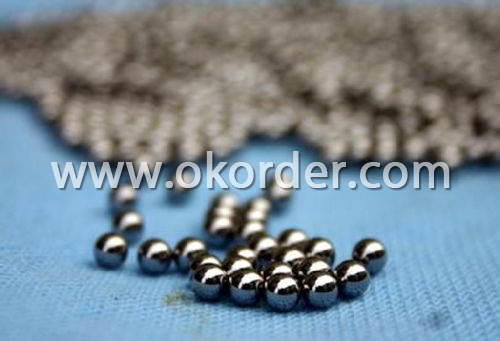
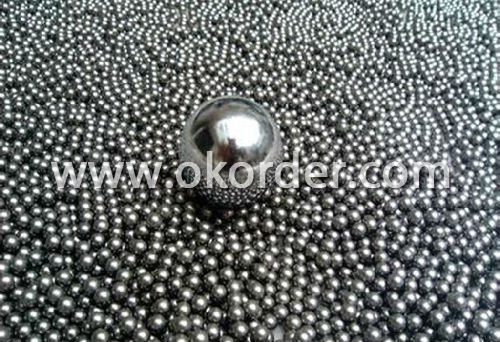
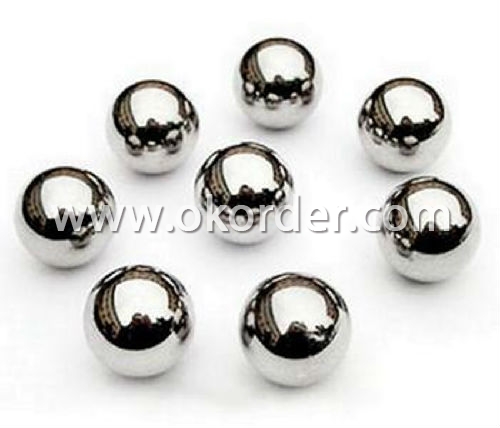
- Q: Are stainless steel balls suitable for solar panel applications?
- Stainless steel balls are indeed appropriate for solar panel applications. This is because stainless steel possesses exceptional durability and resistance to corrosion, rendering it exceptionally well-suited for both long-term and outdoor use. In the realm of solar panel applications, stainless steel balls are frequently employed as components of tracking systems or as part of the mounting and fixing mechanisms. Notably, these balls offer stability, promote smooth movement, and exhibit resistance to environmental elements, such as moisture and UV radiation. Moreover, stainless steel is an environmentally friendly material that can be recycled, thereby aligning with the sustainable essence of solar energy. Consequently, due to their remarkable durability, corrosion resistance, and compatibility with outdoor conditions, stainless steel balls represent a judicious choice for solar panel applications.
- Q: What is the weight of stainless steel balls compared to other materials?
- The weight of stainless steel balls may vary depending on their specific type and size. Generally, stainless steel balls are heavier than most other materials commonly used for ball bearings or similar applications. This is due to the dense and heavy nature of stainless steel, which typically weighs around 7.9 grams per cubic centimeter. In contrast, materials like plastic or aluminum are much lighter, with densities ranging from 1.2 to 2.7 grams per cubic centimeter. Consequently, stainless steel balls will generally have a higher weight compared to balls made from these lighter materials of similar size. It is worth noting that the weight of stainless steel balls can also be influenced by factors such as diameter, wall thickness, and any additional coatings or reinforcements. Therefore, it is advisable to consult the specific manufacturer or supplier for accurate weight information on stainless steel balls.
- Q: What are the advantages of using stainless steel balls?
- There are several advantages of using stainless steel balls. Firstly, stainless steel is highly resistant to corrosion and rust, making it ideal for use in various environments, including wet and corrosive conditions. Secondly, stainless steel balls have excellent durability and hardness, allowing them to withstand heavy loads and high-impact applications. Additionally, stainless steel balls offer good dimensional stability and precision, making them suitable for accurate and consistent performance in various industries such as automotive, aerospace, and medical. Lastly, stainless steel balls can maintain their properties even at high temperatures, ensuring their reliability and longevity in extreme operating conditions.
- Q: Are stainless steel balls suitable for vibration damping?
- No, stainless steel balls are not typically suitable for vibration damping as they do not possess the necessary properties to absorb or dissipate vibrations effectively.
- Q: Are stainless steel balls used in measuring instruments?
- Yes, stainless steel balls are commonly used in measuring instruments. They are often utilized as reference spheres in various measuring devices and precision instruments, such as coordinate measuring machines (CMMs), optical comparators, and dimensional metrology equipment. Stainless steel balls are preferred in these applications due to their excellent corrosion resistance, high precision, and durability.
- Q: Are stainless steel balls used in any agricultural equipment?
- Some agricultural equipment utilizes stainless steel balls. These balls are frequently employed in seeders and planters to guarantee consistent and seamless seed distribution. In addition, they aid in the movement of different parts and components in agricultural machinery like harvesters and threshers. In livestock equipment such as automatic waterers and feeders, stainless steel balls are widely used for their corrosion resistance and durability. All in all, stainless steel balls are an essential component in agricultural equipment, enhancing performance, durability, and reliability in challenging farming conditions.
- Q: Are stainless steel balls suitable for automotive applications?
- Yes, stainless steel balls are suitable for automotive applications. They offer excellent corrosion resistance, high strength, and durability, making them ideal for various automotive components such as bearings, valves, and fuel injection systems.
- Q: What is the heat treatment process for stainless steel balls?
- The heat treatment process for stainless steel balls involves heating the balls to a specific temperature and then cooling them rapidly to change their internal structure and properties. This process is typically carried out in a controlled atmosphere to prevent oxidation. It helps to improve the hardness, strength, and corrosion resistance of the stainless steel balls, making them suitable for various applications such as bearings and valves.
- Q: Can stainless steel balls be used in military applications?
- Yes, stainless steel balls can be used in military applications. Stainless steel offers several advantages that make it suitable for military use. Firstly, stainless steel is highly corrosion resistant, which is crucial in military environments where exposure to moisture, saltwater, and various chemicals is common. This resistance ensures the longevity and reliability of the balls, even in harsh conditions. Secondly, stainless steel balls have excellent mechanical properties, including high strength and hardness. This makes them capable of withstanding heavy loads, impacts, and extreme temperatures, which are often encountered in military operations. The durability and resilience of stainless steel balls make them ideal for applications such as bearings, valves, ammunition, and various mechanical components used in military equipment. Additionally, stainless steel balls are non-magnetic, which can be advantageous in certain military applications. Their non-magnetic nature allows them to be used in sensitive instruments, devices, or equipment that require precise magnetic fields, such as compasses, navigation systems, or magnetic sensors. Furthermore, stainless steel balls can be manufactured with specific surface finishes, tolerances, and precision grades, ensuring high-quality and reliable performance in critical military applications. The ability to produce stainless steel balls with precise dimensions and exceptional roundness is crucial for achieving accuracy and consistency in military equipment. In conclusion, stainless steel balls can indeed be used in military applications due to their corrosion resistance, mechanical properties, non-magnetic nature, and the ability to manufacture them to precise specifications. Their reliability, resilience, and performance make them an excellent choice for various military equipment and systems, contributing to the effectiveness and safety of military operations.
- Q: Do stainless steel balls have a smooth surface finish?
- Yes, stainless steel balls typically have a smooth surface finish due to the polishing process they undergo during manufacturing.
1. Manufacturer Overview
| Location | Guangzhou,China |
| Year Established | 2001 |
| Annual Output Value | Above US$0.5 Million |
| Main Markets | Southeast Asia, Europe |
| Company Certifications | ISO 9001:2008; |
2. Manufacturer Certificates
| a) Certification Name | |
| Range | |
| Reference | |
| Validity Period |
3. Manufacturer Capability
| a) Trade Capacity | |
| Nearest Port | Shanghai |
| Export Percentage | 30% |
| No.of Employees in Trade Department | 10 People |
| Language Spoken: | English;Chinese |
| b) Factory Information | |
| Factory Size: | Above 30,000 square meters |
| No. of Production Lines | Above 7 |
| Contract Manufacturing | OEM Service Offered;Design Service Offered |
| Product Price Range | Average |
Send your message to us
304 Stainless Steel Ball
- Loading Port:
- China Main Port
- Payment Terms:
- TT or LC
- Min Order Qty:
- 5 Tons pc
- Supply Capability:
- 1000 Tons Per Month pc/month
OKorder Service Pledge
OKorder Financial Service
Similar products
Hot products
Hot Searches
Related keywords
